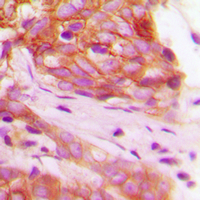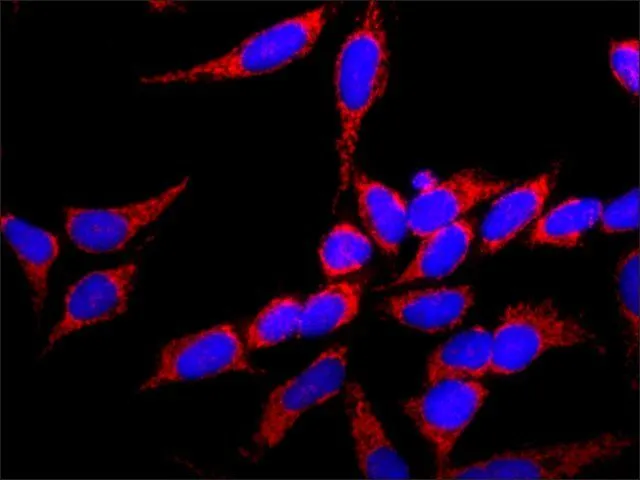FGFR1 (phospho Tyr766) antibody
GTX133527
ApplicationsWestern Blot
Product group Antibodies
TargetFGFR1
Overview
- SupplierGeneTex
- Product NameFGFR1 (phospho Tyr766) antibody
- Delivery Days Customer9
- Application Supplier NoteWB: 1:500-1:3000. *Optimal dilutions/concentrations should be determined by the researcher.Not tested in other applications.
- ApplicationsWestern Blot
- CertificationResearch Use Only
- ClonalityPolyclonal
- Concentration0.6 mg/ml
- ConjugateUnconjugated
- Gene ID2260
- Target nameFGFR1
- Target descriptionfibroblast growth factor receptor 1
- Target synonymsBFGFR, CD331, CEK, ECCL, FGFBR, FGFR-1, FLG, FLT-2, FLT2, HBGFR, HH2, HRTFDS, KAL2, N-SAM, OGD, bFGF-R-1, fibroblast growth factor receptor 1, FGFR1/PLAG1 fusion, FMS-like tyrosine kinase 2, basic fibroblast growth factor receptor 1, fms-related tyrosine kinase 2, heparin-binding growth factor receptor, hydroxyaryl-protein kinase, proto-oncogene c-Fgr
- HostRabbit
- IsotypeIgG
- Protein IDP11362
- Protein NameFibroblast growth factor receptor 1
- Scientific DescriptionThe protein encoded by this gene is a member of the fibroblast growth factor receptor (FGFR) family, where amino acid sequence is highly conserved between members and throughout evolution. FGFR family members differ from one another in their ligand affinities and tissue distribution. A full-length representative protein consists of an extracellular region, composed of three immunoglobulin-like domains, a single hydrophobic membrane-spanning segment and a cytoplasmic tyrosine kinase domain. The extracellular portion of the protein interacts with fibroblast growth factors, setting in motion a cascade of downstream signals, ultimately influencing mitogenesis and differentiation. This particular family member binds both acidic and basic fibroblast growth factors and is involved in limb induction. Mutations in this gene have been associated with Pfeiffer syndrome, Jackson-Weiss syndrome, Antley-Bixler syndrome, osteoglophonic dysplasia, and autosomal dominant Kallmann syndrome 2. Chromosomal aberrations involving this gene are associated with stem cell myeloproliferative disorder and stem cell leukemia lymphoma syndrome. Alternatively spliced variants which encode different protein isoforms have been described; however, not all variants have been fully characterized. [provided by RefSeq]
- Storage Instruction-20°C or -80°C,2°C to 8°C
- UNSPSC12352203




![WB analysis of extracellular domain of human FGFR1 (aa22-376) using GTX83370 FGFR1 antibody [3D4F7].](https://www.genetex.com/upload/website/prouct_img/normal/GTX83370/GTX83370_20170912_WB_w_23061322_900.webp)
